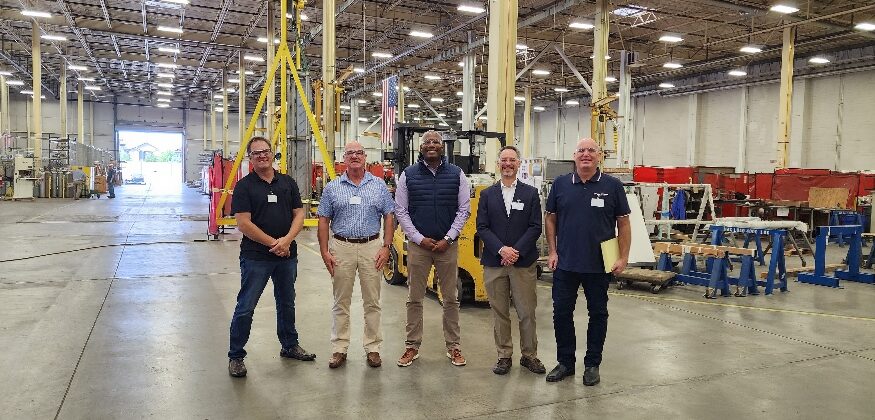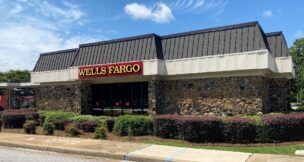How the Savannah River Site in Aiken overhauled its supply chain process
Jason Thomas //March 6, 2024//

A Savannah River Nuclear Solutions (SRNS) Supplier Technical Assessment and Validation (STAV) team with a Manufacturing Extension Partnership (MEP) team during a STAV manufacturing facility review. (Photo/National Nuclear Security Administration and Savannah River Nuclear Solutions)

A Savannah River Nuclear Solutions (SRNS) Supplier Technical Assessment and Validation (STAV) team with a Manufacturing Extension Partnership (MEP) team during a STAV manufacturing facility review. (Photo/National Nuclear Security Administration and Savannah River Nuclear Solutions)
How the Savannah River Site in Aiken overhauled its supply chain process
Jason Thomas //March 6, 2024//
A supply chain management team at the Savannah River Site (SRS) has accomplished a significant overhaul of its supplier evaluation process to validate manufacturers’ capabilities to meet critical schedule requirements — a solution that is being scaled across several federal facilities.
The National Nuclear Security Administration (NNSA) has tasked and funded SRS to begin preliminary planning work related to nuclear weapons modernization, according to a news release. In support of this mission, SRS management and operations contractor Savannah River Nuclear Solutions (SRNS) needed to assess manufacturing and assembly capabilities of suppliers proposing in an environment where businesses are challenged with an insufficient labor base, the release stated.
SRNS launched the Supplier Technical Assessment and Validation (STAV) process. This new process has enabled SRNS to better determine manufacturers’ capabilities before award, in turn leading to higher success rates of delivering parts on or ahead of schedule, the release stated.
A Savannah River Nuclear Solutions (SRNS) Supplier Technical Assessment and Validation (STAV) team worked with a Manufacturing Extension Partnership (MEP) team during a STAV manufacturing facility review, the release stated.
Related content: South Carolina’s supply chain infrastructure is expanding — what to know
Related content: Logistics tech company to expand in Charleston County
SRNS stood up a team of subject matter experts in engineering, quality, welding and procurement; the team then conducted a thorough assessment with potential suppliers, the release stated. These assessments included the review of manufacturing processes, quality, fabrication schedules, capacity and more.
To strengthen the manufacturing supply base, SRNS connected suppliers with Manufacturing Extension Partnership (MEP) teams, according to the release. These partnerships, organized through the U.S. Department of Commerce, are staffed by experienced manufacturing and business operations experts who are experienced turnaround gurus, the release stated.
Together, manufacturers and MEP teams reviewed facilities and implemented process improvements focused on increasing manufacturing efficiency, according to the release. Unleashing this latent supply base capacity will facilitate on-time shipments and preclude costly construction delays, the release stated.
The STAV process is now being scaled across the SRNS manufacturing supply base to improve the Department of Energy’s project and mission success, according to the release.
“This is a win-win for our suppliers and SRNS,” said Jay Johnson, SRNS deputy vice president of Contracts and Supply Chain Management, in the release. “This process transforms how we engage suppliers — proactively in advance of procurement, which enables partnering initiatives to ready the supply base for our complex requirements and aggressive schedules.”
Suppliers obtain expert guidance on how to improve their key processes resulting in the ability to become much more agile and efficient, the release stated. Additionally, most MEPs have state funding to assist suppliers in their states to sustain and grow businesses, which means more stability for the state’s labor base.
This process yields early recognition of risk and mitigation steps that can be taken by the supplier, which results in increasing confidence in supplier commitments, according to the release.
n















